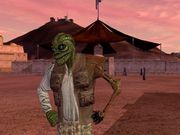

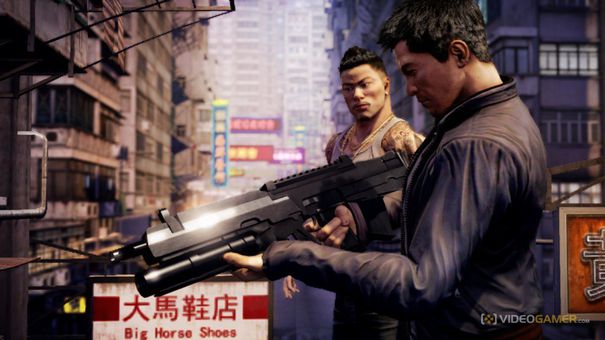
The story in Sleeping Dogs is told in a way that often makes you wonder if you've just fallen asleep and missed an entire chunk, but somehow it holds together and is making me want see it through to the conclusion.
Wei Shen is a great lead character, and his gradual fall (or rise) into criminal activities while still a member of the police force is an excellent, albeit unoriginal, plot device. I just wish United Front had delivered more choice and consequence. At points Wei does things that I'm not sure he would have done, given his previous actions, and I'd have liked to have made those choices instead of the game forcing them on me.
Annoyingly, despite being near the end I'm having to give Sleeping Dogs a break to play Sackboy's debut on the Vita. You can read all about that next week.
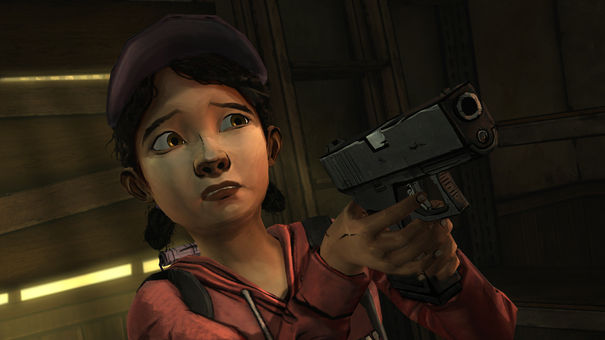
It's that time again, the one where I try to pimp out The Walking Dead without actually saying anything specific about the game itself. I know I do this every time a new episode shows up, but I'm going to carry on for as long as Telltale maintain the quality – and on current evidence, they may go all the way.
So here I go once more: Telltale's The Walking Dead is the badger's nadgers. It looks great, has excellent voice acting, and clearly has a very tight handle on Robert Kirkman's bleak-as-hell comics. But more than that, these quiet little chunks of adventure gaming are telling damn good stories – and they're even managing to use player decisions in a smart, interesting way. Quantic Dream could learn a lot from Telltale, so I was encouraged to learn that David Cage is a fan. This series collectively represents my favourite game of 2012 so far; it's just a shame that PS3 owners have had to wait so long for the third chapter.
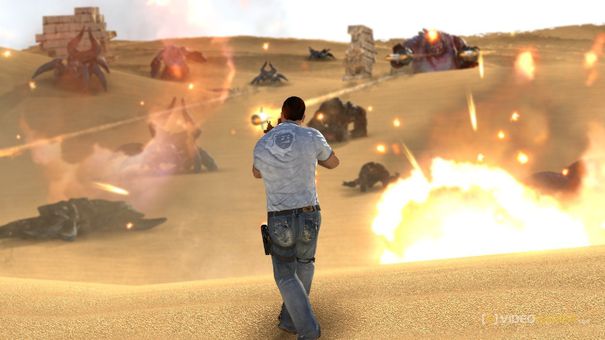
I played Serious Sam years ago and it was great. Back when I was a kid every game used to be like DOOM or Quake, or failing that Duke Nukem 3D, and it was a glorious time of people looking for keycards and getting lost. The classic FPS game used to make you feel like a rat in a maze, and they were awesome when they weren't making you feel totally frustrated.
I've only played the first handful of levels in Serious Sam 3, but they're okay. They remind me of being young. I like shooting monsters with shotguns, so I am pretty happy to be playing Serious Sam 3.[videogamer] I'm probably the worst games journalist ever, because I should probably be wiping Ken Levine's jizz off my face or talking about some kind of ornate but impenetrable adventure game that I’ve been playing, but instead I have been running around blasting monsters with shotguns in this game that is an okay throwback to How Things Used To Be.[/videogmaer]
In short, Serious Sam 3 was a fairly decent way to spend a few quid from that last Steam sale. Console games are still beyond boring. What a year.
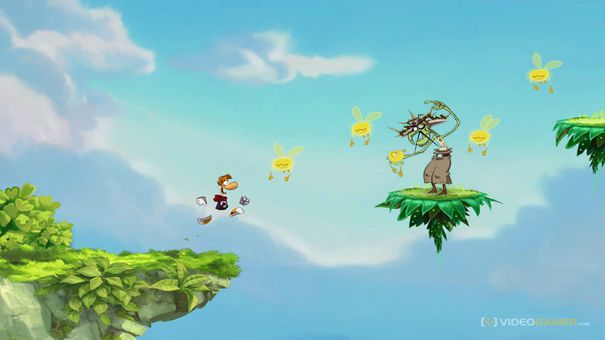
That level. That god damn, soul-destroying, controller-smashing Land of the Livid Dead level. Just the mere mention of it is often enough to make me seethe with rage. But when you think about it, Rayman Origins was perhaps less a platformer and more a rhythm action game. There wasn't any navigation skill required to succeed in those later levels, per se, with the second half of the game often tending to be built around the concept of die and retry. Success came from muscle memory; learning when to hit the jump button, rather than preciseness in physically negotiating the worlds.
Which is why Rayman Jungle Run fits mobile devices as well as it does. It's effectively Rayman Origins does Canabalt, built using the same lush UbiArt Framework as the console versions and - thanks to that Retina Display - arguably better looking than all of them. The control system has been reworked and the levels have been redesigned - tapping the screen makes Rayman jump, glide or punch, while running occurs automatically. Yet Ancel's astute level design manages to make Jungle Run feel accessible, without ever appearing overly simplified for mobile.
The game launches on iOS and Android on September 20, and for gamers on the go, Jungle Run could be the perfect companion piece.


